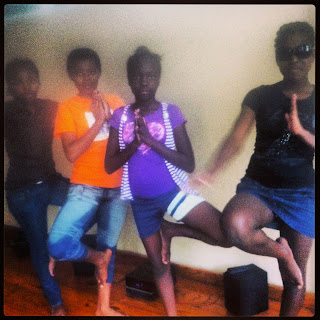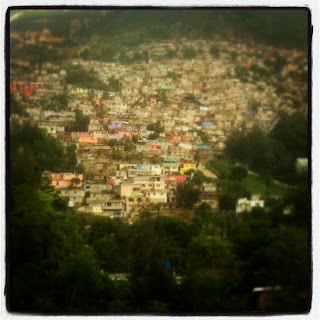Last week the New York Times published an op-ed that created more than a few conversations among aid and development workers in Haiti. The reactions have been mixed and this blog post is reflection on my reaction to the write-up.
Yes, we come to do good. And yes, there are contradictions in our day to day lives. It can be confusing. We come to Haiti because our hearts hear the call of our brothers and sisters in the poorest country in the western hemisphere. We come to offer a hand in alleviating what we perceive as an immense suffering greater than we could know in our home country. We are here to help...
But to help who exactly? And to what long-lasting effect? Can we be certain that the positive focused impact we have is enough to outweigh the potential negatives of large-scale 'aid culture'?
How many people in the Haiti are asking these questions? I'm not sure, but I know I am. Every day I am here is filled with them.
In my short five months in Haiti I have met at least 100 people from all over the world working to help Haiti in a myriad of ways. Off the top of my head, I've met people working on...
...large scale government infrastructure improvement projects... improving the electoral process....improving transparency of parliament...introducing cookstove technologies...building houses out of waste materials....offering free physical therapy...paying people for trash and recycling....helping to feed hungry children...teaching kids art and photography...building creative schools in communities...empowering women and girls through education and community strengthening...introducing alternative energy resources...offering trauma relief services....
I see all of this each day and I ask myself again and again, "What am I doing here? What is my role in all of this?"
In "I came to Haiti to do good." Nora writes,
"Meanwhile, they see us leaving the grocery store with bags of food that cost more than what they make in a month. They watch us get into large air-conditioned cars and drive by them, always by them. They see us going home to nice, big houses, shielded by high walls.
And here is what they don’t know: These houses? We could never afford them back home. These houses we have because they don’t. We have a job because they are poor. And because their poverty is extreme, because the country they were born in is hot, dusty, stormy, messy and perilous, we are paid well."This is not the story of every development worker or expat living in Haiti, but I see it as the rule rather than the exception. And this rule creates confusion for some of us. What is the message we are sending? What is the broader long-arc impact of our presence here? Is it fair that I am here to help and at the same time living a life that is inaccessible to the very people I am supposedly helping?
 These are questions I ask for which I have no answer.
These are questions I ask for which I have no answer.Being here is about coming to terms with acceptance that I don't have the answers. And that I probably never will. Teaching yoga in Haiti is teaching me to recognize the value of being OK with not knowing.
Much of my life in Haiti over the past 5 months has been the practice of coming back to this idea daily. "I am uncertain about the what's, why's and how's of what I choose to do each day I live in Haiti. I am unclear about my goals and desires for the impact those actions have in the larger picture of life. This uncertainty is OK. I am safe, I am happy. May I heal. May I be a source of healing for others."
These words of Rainer Maria Rilke strike deep to the center of this practice and serve as a touchstone when I lose my way and get caught up in the questions and the seeking.
I can spin a thousand stories of what I am doing here in Haiti and how I can self-validate the way I choose to spend my days. On the surface it is simple: I am here sharing yoga, health and wellness practices.“Be patient toward all that is unsolved in your heart and try to love the questions themselves, like locked rooms and like books that are now written in a very foreign tongue. Do not now seek the answers, which cannot be given you because you would not be able to live them. And the point is, to live everything. Live the questions now. Perhaps you will then gradually, without noticing it, live along some distant day into the answer.”
When I question why I am doing this work in Haiti, I am reminded that it doesn't matter where I am. It doesn't matter what I am doing. All that matters is that I remember to love. Love big, love often. The rest will sort itself out.
